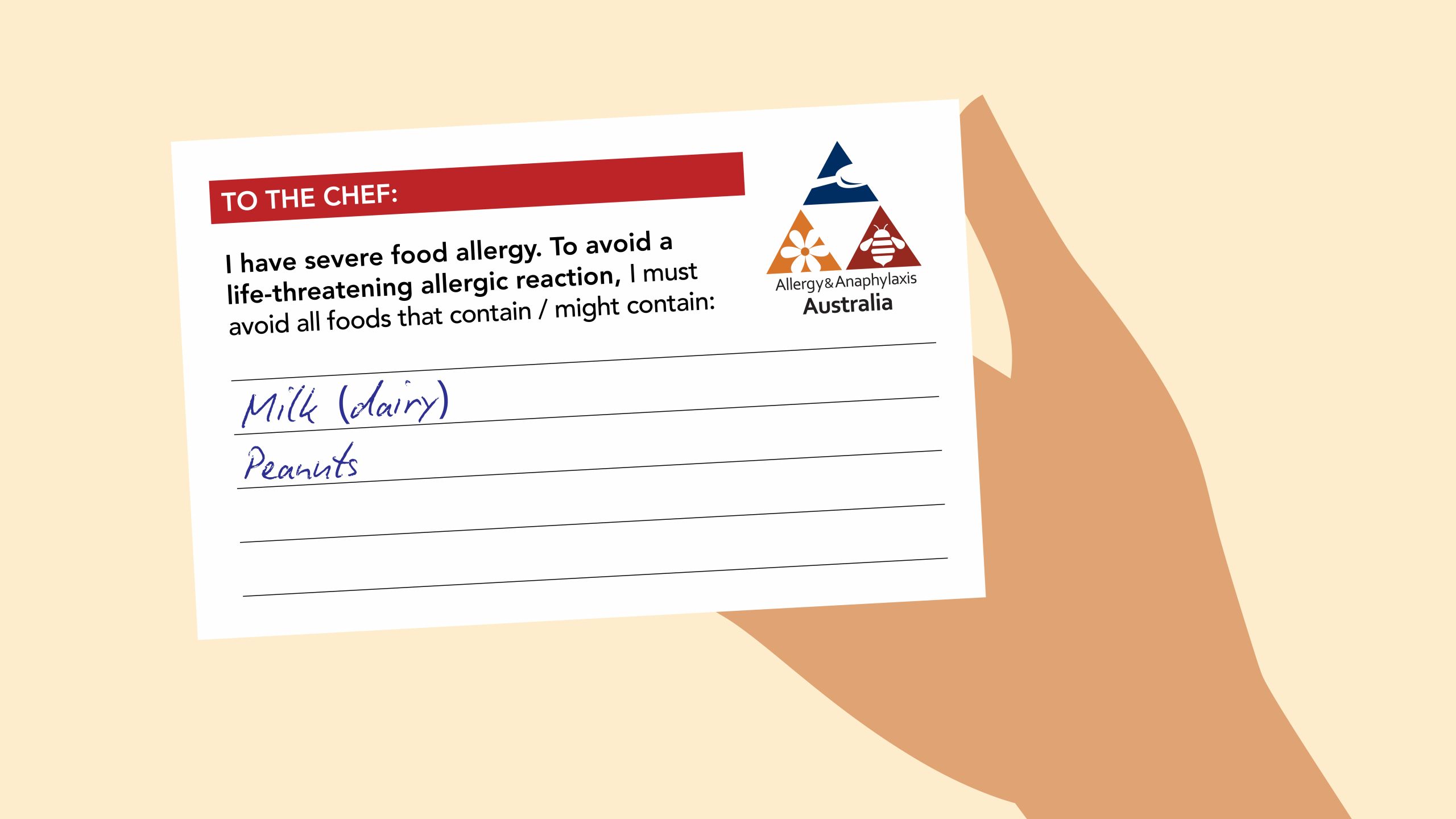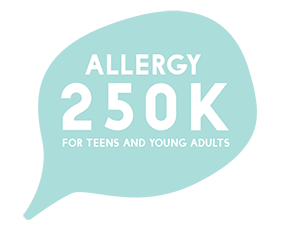Travelling with food allergy
Top Tips For Travel
- Take your own food on the plane.
- Get an ASCIA Travel Planfrom your GP.
- Consider your destination, including local food types and access to medical care.
- Take at least two EpiPen®s or Anapen®s when travelling and consider taking three devices if travelling overseas.
- Print translated allergy information when going overseas.
"Plan ahead. Consider the risks and be prepared when travelling. Always take at least two EpiPens® or Anapens®with you."
Travelling the world is something that everyone may dream of doing. Many teens take a year off travel oversees when they finish high school. Your allergy shouldn’t stop you from travelling. However, you will need some additional planning to help reduce the risk of an allergic reaction while travelling.
Travel Planning – The Basics
- Get an ASCIA Travel Planfrom your GP. This document tells the airline that you need your adrenaline injectors and your own food. Your GP can also help you plan and prescribe any additional medications for your trip.
- Get some travel cards that translate your allergy information into the local language. Allergy & Anaphylaxis Australia now have Chef Cards available in different languages.

- Get travel insurance that specifically covers being at risk of anaphylaxis.
- Take at least two adrenaline injectors when travelling in Australia and consider taking three devices for overseas travel.
Travel with a partner or friend
There may come a time in your life where you will have to or want to travel on your own (e.g. for work). However, for your first overseas trip, it might be a good idea to travel with a close friend or partner.
Having someone with you who knows about your food allergy and what to do in an emergency, can help to ease any anxiety about managing your food allergy in a foreign country.
Flying
Flying may be the hardest part about travelling with food allergy. You need to consider what you are going to eat. You may also be presented with a situation where someone near you is eating the food you are allergic to.
Here are some tips for flying with food allergy:
- Just as you would declare your food allergy when eating out, you should let flight staff know that you have a food allergy and an adrenaline injector. You should also disclose your food allergy when booking your flights.
- Take your own food on the flight. This can be challenging if you have long flights and stop-overs as other countries will have different customs laws. It is important to do some research before you go about what you can take, and pack non-perishable items. It will also help to have a letter from a doctor explaining why you need your own food – the ASCIA Travel Plan for Anaphylaxis is useful for this reason.
- Have wet-wipes on hand and wipe down the seat, arm rest and tray table before sitting down. Wipe down the iPad or TV screen and controls as well.
- ALWAYS keep your adrenaline injectors with your carry-on luggage. Have them on hand when seated. Do not store your medication in the hold above. You don’t want to delay administration of your medication should you feel a reaction coming on. If you are sitting in an exit row seat, you will need to have your adrenaline injectors on hand as your hand luggage will need to be in the hold above.
Accommodation
While hostels are a cheap and fun option, they generally have a communal kitchen and eating areas. Managing a home-cooked meal in a hostel could potentially be unsafe as you cannot be sure that the risk of cross-contamination has been minimised.
It is best that you book accommodation that has its own private kitchen – like a serviced apartment, which may cost a little more but is a safer option. Discuss this with the person or people you are travelling with.
When you arrive you may want to give all cutlery, utensils and crockery a wash. It’s hard to know how well they have been cleaned previously, so best to make sure by cleaning them yourself.
Booked tours
A common way to travel when you’re young is through a booked tour, such as Contiki or Top Deck. When booking your place on tour, make sure to disclose your food allergy and highlight the severity of your allergy. If you are able to contact your Trip Manager prior to your tour, you should do this so that they clearly understand your dietary needs. If this is not possible, make sure you verbally disclose your food allergy at the beginning of the tour. You will also need to check food content at every meal. Don’t presume that the food is safe because you have disclosed your food allergy.
Eating Out
Eating out while overseas has a number of challenges. There is a language barrier, as well as different food legislations in place. You may need to research the restaurants or local eateries before dining to check that there is food available for you to eat. You should try to do this even when you are in an English speaking country.
Find a way to disclose your food allergy, whether that be via verbal or written communication. Ask if there is a staff member who can speak English, if not in an English speaking country.
Translation cards are very helpful when travelling to countries where English is not the first language. Translatable chef-cards are available for you to freely download and take with you.
If you are unable to (or uncomfortable) eating the local food, locate franchise take-away outlets that are familiar to you. This might not be how you planned to eat, but it may provide a safer option at the time until you find other places to eat where you feel confident that they can accommodate your food allergy.
"Plan ahead. Consider the risks and be prepared when travelling. Always take at least two EpiPens® or Anapens®with you."
For more resources on travelling with food allergy:
Some websites that offer translated information include:

